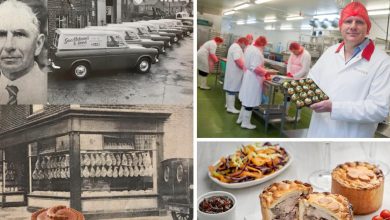Zero-alcohol beer and gin seeing sales soar in Norfolk
Adnams, a brewery based in Southwold, has been at the forefront of the movement to provide low alcohol or alcohol-free beer to non-drinkers. The sales of their most popular offering, Ghost Ship 0.5, saw a significant rise of 25% since June. This increase in sales can be attributed to its similarity to the popular Ghost Ship 4.5% beer. The growing market for non-alcoholic beverages has inspired other companies to follow suit. Home Farm Gin, a distillery based in Hethersett, recently released its first alcohol-free spirit, which has been well-received by both retailers and pubs. The demand for alcohol-free gin has pleasantly surprised the company, as more and more pubs are expressing interest in purchasing their products.
However, while these beverages may be easy for customers to consume, the process of creating them is anything but simple. Making alcohol-free gin requires using water as a base instead of alcohol and flavoring it with botanicals. The challenge lies in recreating the warming effect typically associated with regular gin. To solve this problem, the team at Home Farm Gin turned to the natural world and found that chillies provided the desired sensation. By incorporating chillies into their alcohol-free gin, they were able to achieve a taste and sensation similar to regular gin. This is crucial in providing customers with a product that doesn’t feel like a soft drink, but still allows them to enjoy a guilt-free drinking experience.
Adnams and Home Farm Gin are just two examples of companies catering to the growing demand for low alcohol or alcohol-free beverages. With the market for these products expanding, more businesses are likely to follow suit and create their own offerings. The success of Ghost Ship 0.5 and Home Farm Gin’s alcohol-free spirit demonstrates that there is a significant consumer base for these products, especially among pubs and retailers. As more people choose to reduce their alcohol consumption or abstain from it altogether, the demand for alternatives will only continue to grow. The key for these companies is to not only create a product that mimics the taste of alcoholic beverages but also provides a similar sensory experience, allowing consumers to enjoy a drink without feeling left out or deprived.





I appreciate the practical advice you’ve given here.